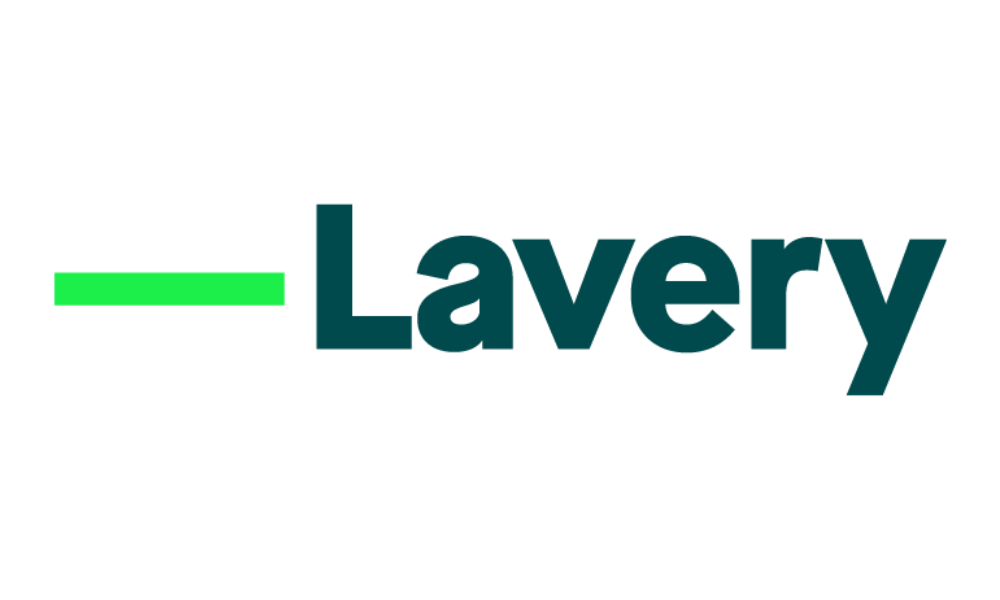According to a 2015 report cited by CAMH, “only seven per cent of Canadian companies identify mental health as one of their top five priority areas of focus (https://www.camh.ca/en/get-involved/join-the-cause/corporate-partnerships)”. Either things have changed in the three years following that report, or the seven per cent of companies are very publicly expressive of their commitment. Because it seems that far more than seven per cent of Corporate Canada is stepping up. Companies – and the large professional consultancy firms – are carrying out and promoting their wellness programs.
Elio Luongo, CEO and Senior Partner at KPMG in Canada, wrote in the Globe and Mail this year, “we’ve had a formal mental health strategy in place since 2014, the focus of which is raising awareness, providing training and building supports – though we’re careful not to take a blanket approach to the issue. Key in all of this is open dialogue – to break down the stigma and support our employees. We are committed to raising mental health and well-being at town halls, events and through communications with our people. We care about our staff, and we are invested in their ability to be and stay well.”
On its website, TELUS notes, “At TELUS Digital, we move fast, and moving fast means taking risks and pivoting quickly to adapt to our customers’ needs. Our teams love the speed at which we move – but moving at a rapid pace does not have to come at the expense of our mental health. It’s crucial to slow down, unplug and check in with our mental wellness. Our #OneTeamOneDream mission is not possible without all of our team members feeling supported and happy.” (https://labs.telus.com/blog/telus-digital-mental-health-week)
Bell Canada was ahead of the curve on public mental health initiatives. It also has an internal stance: “Mental health is the leading cause of workplace disability in Canada and represents 15% of Canada’s burden of disease. Bell is committed to leading by example in our own workplace by adopting the voluntary Standard for Psychological Health and Safety in the Workplace and is encouraging greater corporate engagement across Canada.” (https://letstalk.bell.ca/en/our-initiatives)
Corporate legal departments are joining this wave. Deloitte Canada General Counsel Ken Freeden is very involved in this issue, as he is with other significant Diversity mandates. He is the Executive Sponsor for Deloitte Canada's disability program and works "closely with Talent, and mental wellness is part of that. In terms of my group of 25, we speak about mental wellness often both in terms of what more we can do within the group and what we can do support the firm, as well as the Legal Leaders for Diversity activities. So it is high on our radar screen."
Thus far in-house counsel do not seem to have been asking external counsel whom they retain to provide documentation on their mental health programs – as they have done on Diversity.
Brook Greenberg, Bencher and Chair of the Mental Health Task Force, Law Society of BC, says, “law firms aren’t waiting for the demand to come externally” to institute wellness programs, they’re doing so for the intrinsic reasons and…for the business case. “There is increasingly a recognition of the business case for private law firms. Part of that is driven by increasing social science.”
The Law Society of BC instituted its Task Force in January and expects to report in mid-2018. For now, they are in fact-finding and research mode. Greenberg wrote about the Task Force’s context and mandate in a recent Benchers Bulletin, starting with a sizing estimate: “A 2016 study published in the Journal of Addiction Medicine of almost 14,000 American lawyers found that over 36 per cent showed signs of possible alcohol dependence, as compared with 15 per cent for physicians. More than 45 per cent of responding lawyers described experiencing depression, and 11.5 per cent reported having had suicidal thoughts at some point in their careers. If those findings are extrapolated to British Columbia, 4,241 lawyers in the province may be dealing with alcohol dependence, 5,325 have experienced depression and 1,340 have had suicidal thoughts. Even if you are not currently experiencing these types of difficulties yourself, it is likely that someone you care about in the profession is suffering from a mental health or substance use issue.”
Greenberg told Lexpert about the forces that gave rise to the Task Force: “More and more attention is being paid to mental health and substance abuse in our profession, which is higher, even compared to other high-stress professions.” The Law Society’s role as a regulator, he said, meant this issues were cause for concern and needed to be discussed.
“Why were lawyers so susceptible and what could we do as a regulator,” Greenberg asked of his colleague Benchers. The Task Force hopes to take concrete steps to look at its own regulatory processes and make changes where they are warranted. Mental health is clearly within the LSBC’s three-year strategic plan.
It will prepare a mid-year report, likely in July or August, and provide an end of year report. Greenberg said it plans on providing concrete recommendations on the regulatory processes – particularly when it comes to Admissions and Discipline. “Could we do things better in order to reduce stigma?” With respect to Discipline in particular – could the LSBC develop a diversion program that is focussed more on remediation in circumstances where a mental health or addiction may have contributed?
“We don’t know specifically,” said Greenberg. “In my role on the Discipline Committee, one of the things I do is conduct Conduct Reviews for matters that are less serious than a citation. A number of lawyers who end up in the discipline process are in some type of distress." Greenberg cautions that he is not saying “mental health is causative,” but it may be a contributing factor to the overall situation that could be handled better.
And since the LSBC is doing this in the public interest, it is thoroughly seeking out information generally, including subject matter experts. It is considering much of the work done by the ABA with its National Task Force on Lawyer Well-Being, and particularly the recommendations and actions it has brought forward (www.americanbar.org/groups/lawyer_assistance/task_force_report.html). Here are excerpts from that Task Force Report:
"Our Call to Action: The benefits of increased lawyer well-being are compelling and the cost of lawyer impairment are too great to ignore. There has never been a better or more important time for all sectors of the profession to get serious about the substance use and mental health of ourselves and those around us. The publication of this report, in and of itself, serves the vital role of bringing conversations about these conditions out in the open. In the following pages, we present recommendations for many stakeholders in the legal profession including the judiciary, regulators, legal employers, law schools, bar associations, lawyers’ professional liability carriers, and lawyer assistance programs.
"The recommendations revolve around five core steps intended to build a more sustainable culture: (1) Identifying stakeholders and the role that each of us can play in reducing the level of toxicity in our profession. (2) Ending the stigma surrounding help-seeking behaviors.
"This report contains numerous recommendations to combat the stigma that seeking help will lead to negative professional consequences. (3) Emphasizing that well-being is an indispensable part of a lawyer’s duty of competence. Among the report’s recommendations are steps stakeholders can take to highlight the tie-in between competence and well-being. These include giving this connection formal recognition through modifying the Rules of Professional Conduct or their comments to reference well-being. (4) Expanding educational outreach and programming on well-being issues.
"We need to educate lawyers, judges, and law students on well-being issues. This includes instruction in recognizing mental health and substance use disorders as well as navigating the practice of law in a healthy manner. To implement this recommendation effectively, more resources need to be devoted to promoting well-being. (5) Changing the tone of the profession one small step at a time.
"This report contains a number of small-scale recommendations, such as allowing lawyers to earn continuing legal education (CLE) credit for well-being workshops or de-emphasizing alcohol at bar association social events. These small steps can start the process necessary to place health, resilience, self-care, and helping others at the forefront of what it means to be a lawyer. Collectively, small steps can lead to transformative cultural change in a profession that has always been, and will remain, demanding. Historically, law firms, law schools, bar associations, courts, and malpractice insurers have taken a largely hands-off approach to these issues. They have dealt with them only when forced to because of impairment that can no longer be ignored. The dedication and hard work of lawyer assistance programs aside, we have not done enough to help, encourage, or require lawyers to be, get, or stay well. However, the goal of achieving increased lawyer well-being is within our collective reach. The time to redouble our efforts is now.
"Task Force provides detailed recommendations for minimizing lawyer dysfunction, boosting well-being, and reinforcing the importance of well-being to competence and excellence in practicing law. This section has two main parts. Part I provides general recommendations for all stakeholders in the legal community. Part II provides recommendations tailored to a specific stakeholder: (1) judges, (2) regulators, (3) legal employers, (4) law schools, (5) bar associations, (6) lawyers’ professional liability carriers, and (7) lawyer assistance programs.
“First, we recommend strategies for all stakeholders in the legal profession to play a part in the transformational process aimed at developing a thriving legal profession. Acknowledge the Problems and Take Responsibility: Every sector of the legal profession must support lawyer well-being. Each of us can take a leadership role within our own spheres to change the profession’s mindset from passive denial of problems to proactive support for change."
The ABA Task Force Report continues: “We have the capacity to make a difference. For too long, the legal profession has turned a blind eye to widespread health problems. Many in the legal profession have behaved, at best, as if their colleagues’ well-being is none of their business. At worst, some appear to believe that supporting well-being will harm professional success. Many also appear to believe that lawyers’ health problems are solely attributable to their own personal failings for which they are solely responsible. As to the long-standing psychological distress and substance use problems, many appear to believe that the establishment of lawyer assistance programs – a necessary but not sufficient step toward a solution – has satisfied any responsibility that the profession might have.
"Lawyer assistance programs have made incredible strides; however, to meaningfully reduce lawyer distress, enhance well-being, and change legal culture, all corners of the legal profession need to prioritize lawyer health and well-being. It is not solely a job for lawyer assistance programs. Each of us shares responsibility for making it happen."
Accordingly, “All stakeholders must lead their own efforts aimed at incorporating well-being as an essential component of practicing law, using this report as a launch pad. Changing the culture will not be easy. Critical to this complex endeavor will be the development of a National Action Plan and state-level action plans that continue the effort started in this report. An organized coalition will be necessary to plan, fund, instigate, motivate, and sustain long-term change.”
The Task Force called for action. "Policy statements alone do not shift culture. Broad-scale change requires buy-in and role modeling from top leadership. Leaders in the courts, regulators’ offices, legal employers, law schools, and bar associations will be closely watched for signals about what is expected. Leaders can create and support change through their own demonstrated commitment to core values and wellbeing in their own lives and by supporting others in doing the same.
"All stakeholders must take steps to minimize the stigma of mental health and substance use disorders because the stigma prevents lawyers from seeking help. Research has identified multiple factors that can hinder seeking help for mental health conditions: (1) failure to recognize symptoms; (2) not knowing how to identify or access appropriate treatment or believing it to be a hassle to do so; (3) a culture’s negative attitude about such conditions; (4) fear of adverse reactions by others whose opinions are important.
"These lead to (5) feeling ashamed; (6) viewing help-seeking as a sign of weakness, having a strong preference for self-reliance, and/or having a tendency toward perfectionism; (7) fear of career repercussions; (8) concerns about confidentiality; (9) uncertainty about the quality of organizationally-provided therapists or otherwise doubting that treatment will be effective; and (10) lack of time in busy schedules."
The ABA Task Force points out: "The two most common barriers to seeking treatment for a substance use disorder that lawyers reported were not wanting others to find out they needed help and concerns regarding privacy or confidentiality. Top concerns of law students in the Survey of Law Student Well Being were fear of jeopardizing their academic standing or admission to the practice of law, social stigma, and privacy concerns.
"Research also suggests that professionals with hectic, stressful jobs (like many lawyers and law students) are more likely to perceive obstacles for accessing treatment, which can exacerbate depression. The result of these barriers is that, rather than seeking help early, many wait until their symptoms are so severe that they interfere with daily functioning. Similar dynamics likely apply for aging lawyers seeking assistance. Removing these barriers requires education, skill-building, and stigma-reduction strategies."
Interestingly, the Task Force found a model for assistance in the Military sector: "Research shows that the most effective way to reduce stigma is through direct contact with someone who has personally experienced a relevant disorder. Ideally, this person should be a practicing lawyer or law student (depending on the audience) in order to create a personal connection that lends credibility and combats stigma. Viewing video-taped narratives also is useful, but not as effective as in-person contacts. The military’s 'Real Warrior' campaign can serve as one model for the legal profession. It is designed to improve soldiers’ education about mental health disorders, reduce stigma, and encourage help-seeking.
"Because many soldiers (like many lawyers) perceive seeking help as a weakness, the campaign also has sought to re-frame help-seeking as a sign of strength that is important to resilience. It also highlights cultural values that align with seeking psychological help.
"Many lawyer assistance programs employ teams of experts that are well-qualified to help lawyers, judges, and law students who experience physical or mental health conditions. Lawyer assistance programs’ services are confidential, and many include prevention, intervention, evaluation, counseling, referral to professional help, and on-going monitoring. Many cover a range of well-being-related topics including substance use and mental health disorders, as well as cognitive impairment, process addictions, burnout, and chronic stress.
"A number also provide services to lawyer discipline and admissions processes (e.g., monitoring and drug and alcohol screening). Notably, the Study found that, of lawyers who had reported past treatment for alcohol use, those who had used a treatment program specifically tailored to legal professionals reported, on average, significantly lower scores on the current assessment of alcohol use.
"This at least suggests that lawyer assistance programs, which are specifically tailored to identify and refer lawyers to treatment providers and resources, are a better fit than general treatment programs. Judges, regulators, legal employers, law schools, and bar associations should ally themselves with lawyer assistance programs to provide the above services. These stakeholders should also promote the services of state lawyer assistance programs."
The Report stresses the importance of "the confidential nature of those services to reduce barriers to seeking help. Lawyers are reluctant to seek help for mental health and substance use disorders for fear that doing so might negatively affect their licenses and lead to stigma or judgment of peers. All stakeholders can help combat these fears by clearly communicating about the confidentiality of lawyer assistance programs.
"We also recommend coordinating regular meetings with lawyer assistance program directors to create solutions to the problems facing the profession. Lawyer assistance programs can help organizations establish confidential support groups, wellness days, trainings, summits, and/ or fairs. Additionally, lawyer assistance programs can serve as a resource for speakers and trainers on lawyer well-being topics, contribute to publications, and provide guidance to those concerned about a lawyer’s wellbeing."
Care should be taken to ensure that they understand the particular types of stress that affect lawyers. “We recommend that all stakeholders develop and enforce standards of collegiality and respectful engagement. Judges, regulators, practicing lawyers, law students, and professors continually interact with each other, clients, opposing parties, staff, and many others. Those interactions can either foment a toxic culture that contributes to poor health or can foster a respectful culture that supports well-being. Chronic incivility is corrosive.
"It depletes energy and motivation, increases burnout, and inflicts emotional and physiological damage. It diminishes productivity, performance, creativity, and helping behaviours.
"A recent study of over 6,000 lawyers found that lawyers did not generally have a positive view of lawyer or judge professionalism. There is evidence showing that women lawyers are more frequent targets of incivility and harassment. Legal-industry commentators offer a host of hypotheses to explain the decline in civility. Rather than continuing to puzzle over the causes, we acknowledge the complexity of the problem and invite further thinking on how to address it. As a start, we recommend that bar associations and courts adopt rules of professionalism and civility, such as those that exist in many jurisdictions. Likewise, law firms should adopt their own professionalism standards."
In the work of the BC Law Society and others, one hears the echoes of the ABA Task Force's Report: "Since rules alone will not change culture, all stakeholders should devise strategies to promote wide-scale, voluntary observance of those standards. This should include an expectation that all leaders in the profession be a role model for these standards of professionalism. Exemplary standards of professionalism are inclusive."
At the same time law societies and associations are studying and reporting they are also trying to strategize and act. The Law Society of Ontario, approved its Mental Health Strategy in April 2016. This “builds on the Law Society's existing mental health initiatives and lays the groundwork to explore additional supports or programs that fall within the organization's mandate.
“The long-term plan and vision will address mental health and addiction issues through both preventive and regulatory strategies. A key element is consideration of the role that diversionary and confidential processes - including capacity hearings held in the absence of the public - may play in appropriate circumstances.”
On the regulatory side, the LSO is considering “how mental illness and addictions issues are most appropriately addressed in the regulatory context to meet the Law Society’s Vision and Commitment.” In particular, it is considering how to “support early identification and treatment while continuing to protect the public;” and what part “diversion from regulatory proceedings and/or capacity proceedings held in the absence of the public, could play in appropriate circumstances.”
It has been a perennial problem that lawyers are reluctant to go to their regulators for help. This has been the case even when law societies work hard to separate the member assistance function from licensing. As law societies continue to learn, strategize and do to achieve greater mental health for lawyers, might this change?





